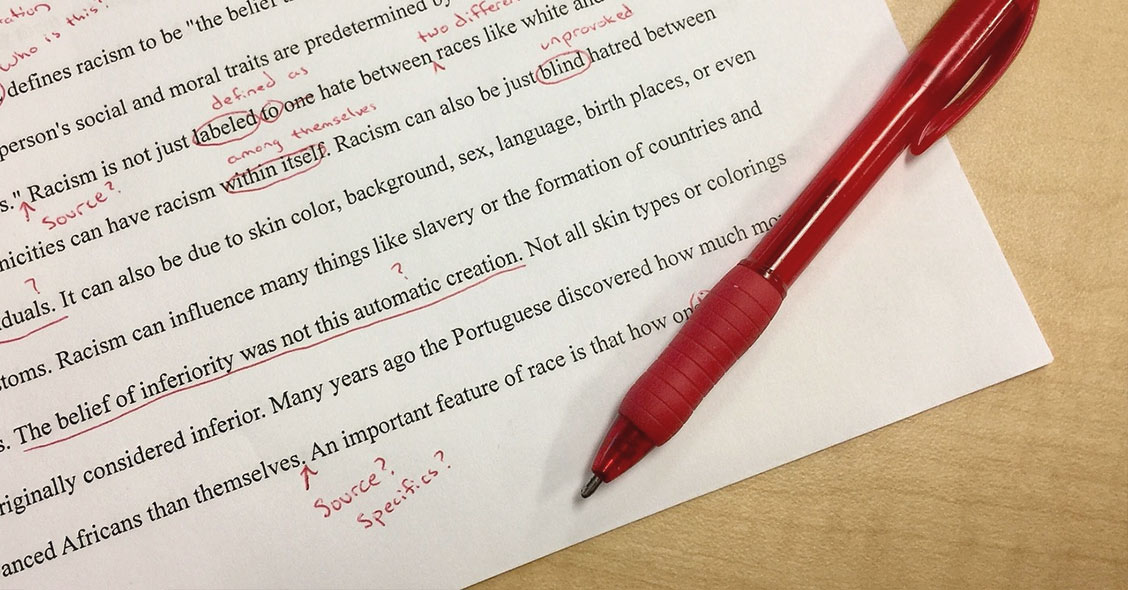2011 (1)
2016 (1035)
2017 (752)
2018 (978)
2019 (385)
2020 (175)
2021 (235)
2022 (101)
2023 (983)
2024 (800)


Easily Avoided English Errors
The English might never be the reason that your research wins a prize or changes the world, but it’s certainly got the power to be the reason why it doesn’t. A paper is only as good as the quality of its expression and, just like science, writing in English can be incredibly technical, with tiny changes representing huge deviations in meaning. So, in order to keep your paper clear, concise and effective, and increase its chance of being published and having the impact it should, read our top ten English mistakes not to make!
- Get your Latin Right
It’s typical of English that our first tip is about using an entirely different language but, when used well, those little bits of Latin can be a perfect shortcut when you don’t want to distract from the content of your paper. If they’re not used correctly, however, these phrases can be confusing, both grammatically and aesthetically, so getting them right is a small change for some serious gain. Here’s a short list of Latin phrases and abbreviations and how to use them in MDPI papers.
- “in vitro” and “in vivo” should never be hyphenated or italicised. Nor should “in situ” or “ex situ”. In fact, Latin should never be italicised!
- “et al.” should always be followed by a full stop, and only a comma if the sentence needs one anyway. If you’re following a reference citation with a year in brackets, you don’t need a comma. If followed with a verb, it should be the plural form; for example, “Smith et al. show” as opposed to “Smith et al. shows”.
- “e.g.,” should always be followed and preceded by a comma and is used to provide an example: “many animals, e.g., the snow leopard, are in danger of becoming extinct”. It should never be italicised.
- “i.e.,” should always be followed and preceded by a comma and is used to explain something: “the football player was offside, i.e., they were in front of the last defender when they were passed the ball”. It should never be italicised.
- “etc.” should always be preceded by a comma and followed by a full stop. If you’re ending a sentence with “etc.”, the full stop at the end acts as the full stop at the end of the sentence; there’s no need to add another one. It should never be italicised.
- US or UK English—Pick a Side!
Analyze vs. analyse, aluminum vs. aluminium, behavior vs. behaviour, signaling vs. signalling. Lots of people have some very strong opinions about which of these are the correct forms to use (including me) but, in reality, either form is acceptable if you use it consistently. If you’re using Microsoft Word, set the language to your preferred form and spellcheck will catch a lot of the mistakes for you.
- Show Respect to “Respectively”
“Respectively” is used to relate the items of one list to the items of another; it means that the items in the second list correspond to items in their position in the first list. It’s easier to use than it is to explain, I promise.
Here’s an example: “In the dog show, the Dachshund, Terrier and Beagle came in 1st, 2nd and 3rd position, respectively.”
The Dachshund came first, the Terrier second and the Beagle third. When using “respectively”, make sure that it is always preceded and followed by a comma, if not already followed by other punctuation.
- Iron out your increases and decreases
When referring to that which increases/decreases, it should always be “increase/decrease in”. When referring to the amount by which something increases/decreases, it should always be “increase/decrease of”.
Here are a couple of examples: “There was an increase/decrease in temperature.” “There was a temperature increase/decrease of 5 °C.”
Combining these together: “There was an increase/decrease in temperature of 5 °C.”
- Start your Sentences Right
Sentences shouldn’t start with “And”, “But” or “Also”. Here are some alternatives that make your writing clearer, more varied and more exciting.
Also → In addition, Additionally, Furthermore, Likewise, Moreover
And → In addition, Additionally
When using “And” to introduce a new idea to supplement one that you have already mentioned, you could also use “Furthermore”, “Likewise” and “Moreover”; however, these cannot be used when you are adding an item to a list that came in the previous sentence.
But → However, Nevertheless, Although
When using these alternative words to start a sentence, make sure that you follow them with a comma!
Keep up with our social media updates on Facebook, Twitter and LinkedIn for more English editing tips.



